In todays overcrowded and commoditized B2B marketplace, brands are finding it increasingly harder to break through the clutter and get their messages heard. B2B brands are trying to edge each other out by pushing and pulling messaging out to rational business decision makers and speaking loudly about their business value.
But, what most B2B marketers are failing to understand is that building personal emotional connections to their audience holds more weight in the decision making and purchasing process than you would ever believe. Emotion plays a larger factor indecision making than reason and logic in most cases. As these case studies and a recent study by Google and CEB Marketing prove, the buying cycle is anything but deviod of emotion.
Below you will find the top 10 insights, plucked from the aforementioned Google study, that every B2B marketer should be aware of when crafting their next and all future marketing campaigns.
1. Customers with strong connections to B2B brands have higher rates of consideration, purchase, and willingness to pay a premium (fig 1) Share on Twitter
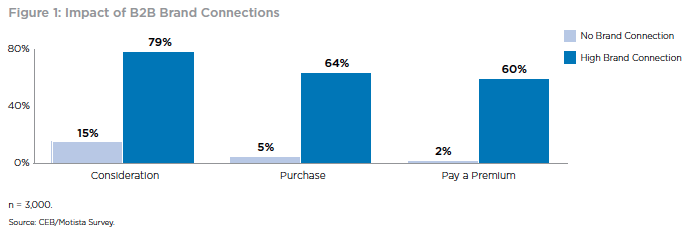
2. Buyers who see a supplier’s business value are four times more likely to consider that brand in the future (fig 3) Share on Twitter
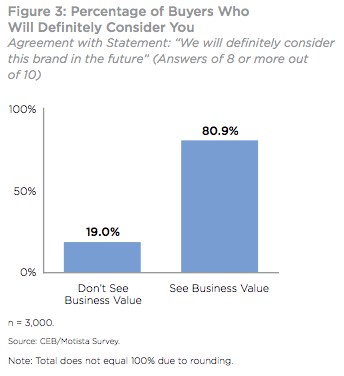
3. Describing business value alone is no longer effective because all top brands convey business value (fig 5) Share on Twitter
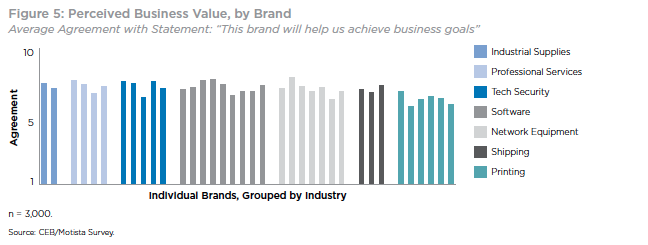
4. Personal value has twice as much impact as business value does. Not only do emotions matter in B2B buying, but they actually matter even more than logic and reason. (fig 8) Share on Twitter
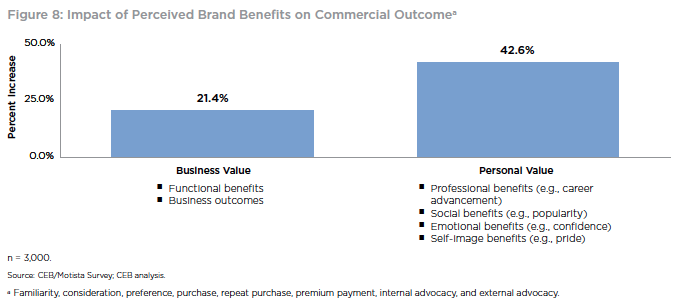
The definition of personal value includes emotional appeals in areas such as professional benefits (e.g., being a better leader, simplifying my life), social benefits (e.g., fitting in with colleagues, admiration from others), emotional benefits (e.g., confidence, excitement, happiness),and self-image benefits (e.g., doing good for society, feeling of accomplishment).
5. A greater proportion of B2B customers are emotionally attached to the brand they purchased than B2C consumers are (fig 9) Share on Twitter
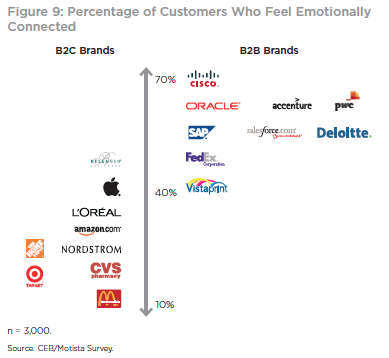
6. The more personal risks a purchase entails, the more emotional buyers feel (figure 10) Share on Twitter
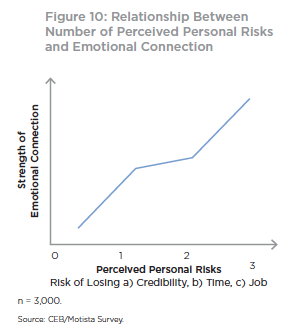
7. When non-customers don’t see personal value, they are over three times less likely to purchase and over seven times less likely to pay a premium. Share on Twitter
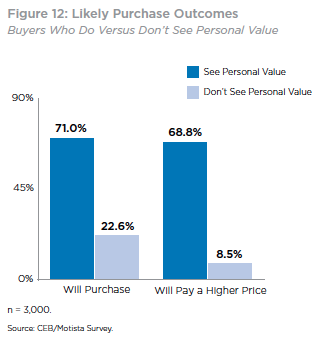
8. Suppliers use emotion to catch buyers’ attention early on, but they switch to rational, business value-oriented messages in the nurturing phases. Marketers should use emotional, personal value messaging throughout, not just at the start and end.
9. In order to effectively engage a B2B buyer with your brand, uncover a Commercial Insight: messages that teach the customer something unexpected and new about their own business needs and challenges that leads exclusively back to the supplier
10. Personalization is powerful: To maximize the impact of Commercial Insight, suppliers should also highlight the personal needs of all stakeholders involved.
Most marketing departments are inclined to think of other businesses as rational, logical and hamstrung on business value. While they are to some extent, the truth is that within those organizations there are people and they are just as likely, if not more likely, to be influenced by emotion. And the quicker we realize that, the quicker the funnel fills up.



